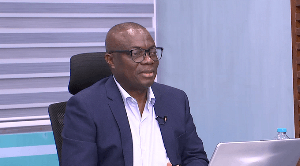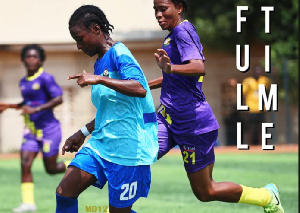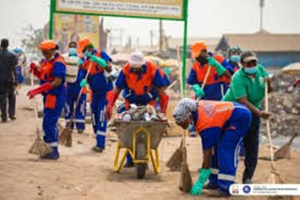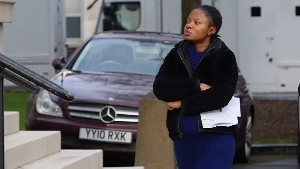Political parties are creatures of law. Therefore, political parties must operate in a manner that honours the law, not to stifle or break it.
Participation in a political process is one of the tenets of true liberal democracy. In Ghana, article 55(2) of the 1992 Constitution guarantees that every citizen of voting age has the right to join a political party. A member of a political party is primarily expected to participate in the political process with the aim of lawfully and positively influencing the composition and policies of the Government. He is also expected to contribute, financially or otherwise, to the realisation of the core objectives of his party.
Political parties operate to; participate in the shaping of the political will of the citizenry; disseminate information on political ideas, social and economic programmes of national character; and sponsor candidates for elections to any elective public office except that of District Assemblies or lower local government units (Only God knows if they do not sponsor candidates for District Assembly elections). Political parties, in performing these functions, are subject to the laws of Ghana. Therefore, a member of a political party is not immuned to legal sanctions upon breaching any law in his quest to achieve any political objective, through unlawful means. Unfortunately, some political parties continue to entertain impunity in the Ghanaian society by shielding their undisciplined members from legal discipline. This attitude has been the bane to Ghana’s smooth political advancement since independence. This article advocates for a change to curtail this untoward conduct. Indeed, our laws should be allowed to whip members of political parties who joke with the law.
All civilised nations find it desirably necessary to enact laws as a means of social control. The laws are meant to regulate the conduct of individuals in a society by making them to refrain from conducts that are detrimental to public good and by guiding them to perform acts which are beneficial to its growth and development. In Ghana, thousands of legislations have been enacted and decreed since colonial days to regulate various aspects of our lives. The Judiciary is mandated by the 1992 Constitution to give effect to or enable effect to be given to these laws through erudite and purposive interpretation and application. However, it must be pointed out that our law courts are passive institutions. This means that unless a matter is brought before a court of law, the court cannot on its own volition adjudicate upon it. For instance, if Kwadwo Anobil allegedly defames Honourable Agya Kwatashie, a famous statesman, unless an action is lawfully initiated, the courts have no business to decide on the matter, no matter how damaging the allegations may be.
In Ghana, the Attorney-General is empowered under article 88 of the Constitution to, among others, initiate and conduct all prosecutions of criminal offences. Accordingly, all offences which must be prosecuted in the name of the Republic of Ghana shall be at the suit of the Attorney-General or any other person duly authorised by him in accordance with law. Clearly, if Yaw Untouchable allegedly murders Innocence Akugri, until the Attorney-General initiates criminal proceedings at the law court, Yaw Untouchable cannot lawfully be ‘touched’ by any concerned person. He may as a result continue to perpetuate his alleged illegal conducts at the expense of the lives of other persons.
The Ghana Police Service has a duty to protect life and property through prevention and detection of crimes. It has the power to arrest, search, or investigate any person suspected of having committed a crime. The purpose of these actions is to facilitate the preparation of dockets which must be sent to the Attorney-General’s Department for advice. The Police may eventually be authorised by the Attorney-General to prosecute a case on his behalf, if he is satisfied with the results of the Police investigations.
In Ghana, issuing of death threats, threatening of mayhem, unlawful seizure of public facilities, attacking public officers, rampaging for job placement and so forth by some so-called political stalwarts and party foot soldiers, in the name of achieving a political objective, are common place. These aberrant conducts are gaining deep roots in the Ghanaian society because the perpetuators are usually not subject to the law. The reason for this sad state of affairs is that these so-called party faithfuls often hide under the banner of their political parties for comfortable protection. Any attempt to bring them to book by the law enforcement officials such as the Police is either neutralised by an intervention of some big party officials or is interpreted by some leaders and members of their political parties as witch-hunting. Besides, there have been several occasions in this country where members of a political or a so-called pressure group went on demonstrations, stirred up unnecessary political tension, or besieged law court premises for the purpose of causing a criminal trial to be aborted or securing the release of a suspected party member, in a lawful custody. Furthermore, both the Police and the Attorney-General, sometimes, hypocritically refused to commence legal actions probably because the suspected criminal is a member of the political party in power or because of an order from the ‘above’. These institutions therefore seem to have developed cold feet to deal with the situation objectively.
Is it the case that the political veil cannot be pierced? Certainly, it can and it should. The recent condemnation from the Government, though commendable, is woefully not enough. Besides, the current swoop exercise and the mass arrest of suspected criminals by the Ghana Police Service should neither be a nine-day wonder nor a political show-off. Finally, the immediate solution to this political albatross does lie in the opening-up of social centres to train the riotous youth to acquire some employable skills. The real issue is not finding jobs for the ‘boys’, but allowing the ‘boys’ to be punished according to law for their unlawful actions. They may, perhaps, still be trained whilst in prison. The last worst mistake a leader should always guard himself against is to allow himself to be led by his deviant followers.
Richard Obeng Mensah;borncapy@yahoo.com. The writer is the author of Persecutions are Promotions and If You Think of Your Opposition You Lose Your Position. He is also the 2009 National Best Student Author/Writer.
Opinions of Monday, 12 April 2010
Columnist: Mensah, Richard Obeng














